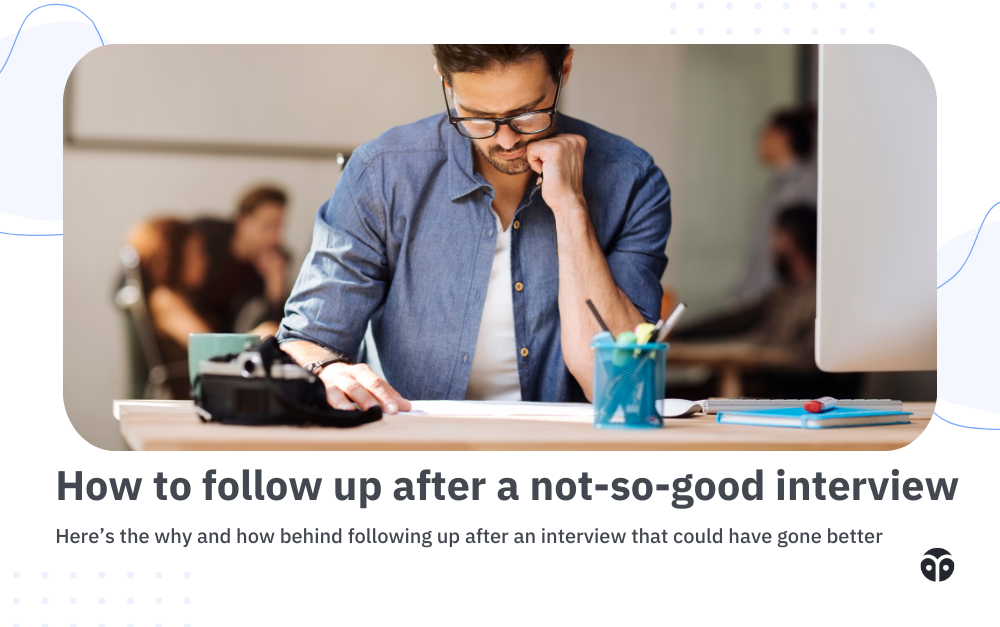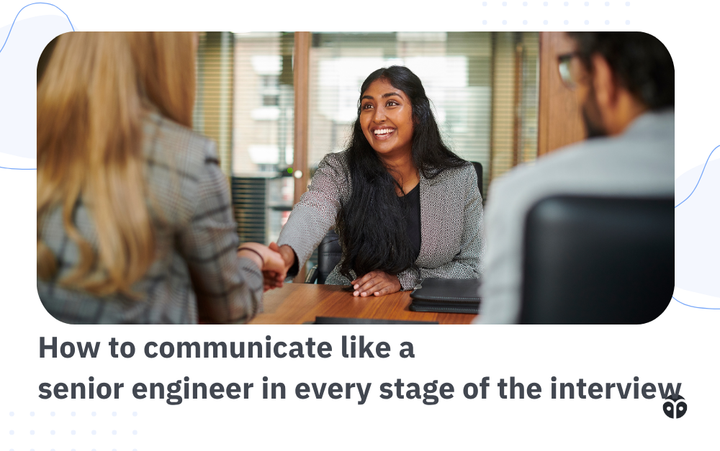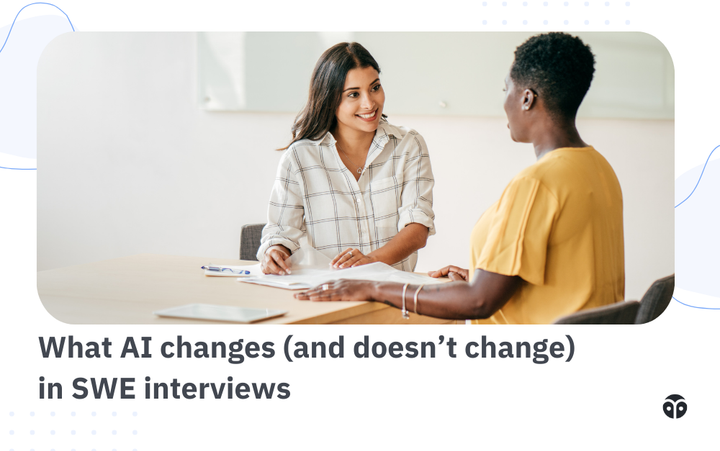What to do after a not-so-good interview
Here's how to handle following up after an interview that didn't go how you'd hoped.

It’s common for an interview to feel like it didn’t go well. Maybe you weren’t at your best, or something didn’t go as planned. If you’re in that situation, following up can be worth it.
You’ve already invested time and energy into preparing—an email could make the difference in getting another chance. Here’s why you should consider reaching out and how to do it.
Why you should follow up
Many factors can affect the outcome of an interview, and not all of them are under your control. Reaching out for another chance when the circumstances weren’t ideal is one thing you can control.
Even SWEs with strong backgrounds and experience pass technical interviews only 50-60% of the time. It’s a process with many moving parts, so don’t be afraid to ask for another attempt if something throws you off during the interview.
If you're hesitating, think about this: what do you have to lose? You’ve already put in the effort, and a follow-up email could help ensure that your performance is fairly evaluated. Whether it results in another interview or more practice for the future, it’s often worth the shot.
When a personal situation affects your interview
Life happens. Whether you’re sick, distracted by a personal issue, or just not feeling your best, it can impact your performance. If you think a personal situation affected how you presented yourself, consider sending a message before the company sends you the interview result, if possible. Even if they’ve already made a decision, it’s still worth following up.
An example of an email before receiving a result:
Subject: Follow-Up on [Role] Interview
Hello [Recruiter Name],
I appreciate the team's time considering me for the [Role Name] position. I wanted to follow up because I wasn’t able to perform at my best during the interview due to [personal situation, e.g., "a sudden illness"].
If the interviewers saw potential in my skills, would it be possible to schedule another attempt? I’m available this upcoming week, [Monday and Wednesday from 2-4 p.m. PT].
Thank you for your consideration,[Your Name]
Template for emailing after the interview result:
Subject: Request for a Follow-Up on [Role] Interview
Hello [Recruiter Name],
Thank you for sharing the interview result and for the time your team took to consider me for the role. I want to share that I wasn’t able to perform to the best of my abilities during the interview because I [personal situation, e.g., "was dealing with a personal emergency"].
If the interviewers saw potential, I would be grateful for the opportunity to have another attempt. I’m available this upcoming week, [Monday and Wednesday from 2-4 p.m. PT].
Thank you,[Your Name]
When the interview setup wasn’t ideal
Sometimes, the interview conditions aren’t right. Maybe the subject matter differed from what you were told to expect, or technical issues interrupted the session. In these cases, a follow-up is still worth considering. But be careful in how you phrase your message—while you want to explain the situation, you don’t want to come across as overly critical.
Template for mismatched subject matter or format:
Subject: Follow-Up on [Role] Interview
Hello [Recruiter Name],
Thank you for sharing the interview result and for the team's time in considering me for the role. I wanted to follow up because the interview didn’t go as expected. Prior to the interview, I understood that we would be covering [topics, e.g., "data structures and algorithms"], but instead, we discussed [different topic, e.g., "systems design"].
I feel I could show my competence in this area if given the chance to prepare. Would it be possible to schedule another interview? I’m available next week, [Monday and Wednesday from 2-4 p.m. PT].
Thank you,[Your Name]
Template for a suboptimal interviewer:
Subject: Follow-Up on [Role] Interview
Hello [Recruiter Name],
Thank you for sharing the interview result and for the time the team invested. I wanted to reach out because I felt that [behavior, e.g., "the interviewer’s tone"] affected my ability to perform at my best.
I would appreciate the opportunity to discuss this further and would welcome another chance to demonstrate my skill set. I’m available this upcoming week, [Monday and Wednesday from 2-4 p.m. PT].
Thank you,[Your Name]
Template for technical difficulties:
Subject: Follow-Up on [Role] Interview
Hello [Recruiter Name],
Thank you for sharing the interview results and for considering me for the role. During the interview, we experienced some technical issues, specifically [issue, e.g., "unstable internet connections"], which led to miscommunication and made it difficult to fully explain my approach.
If the interviewers saw potential, I would appreciate another attempt. I’m available next week, [Monday and Wednesday from 2-4 p.m. PT].
Thank you,[Your Name]
Following up is a smart move
While it’s natural to want to avoid the sting of a second rejection, reaching out after a less-than-perfect interview can still lead to a new opportunity. By carefully addressing the situation and requesting another chance, you’re showing persistence, confidence, and self-awareness—qualities that hiring managers respect.
Get holistic interview prep with Formation
We've been able to help our Fellows land life-changing roles. Formation’s Mentors come from some of the best tech companies in the world, and the personalized career coaching and supportive community make for a great support system.
If you’re having trouble navigating your job search on your own, apply here and get unconditional support from a team of engineering mentors, technical recruiters, career coaches, and more.



